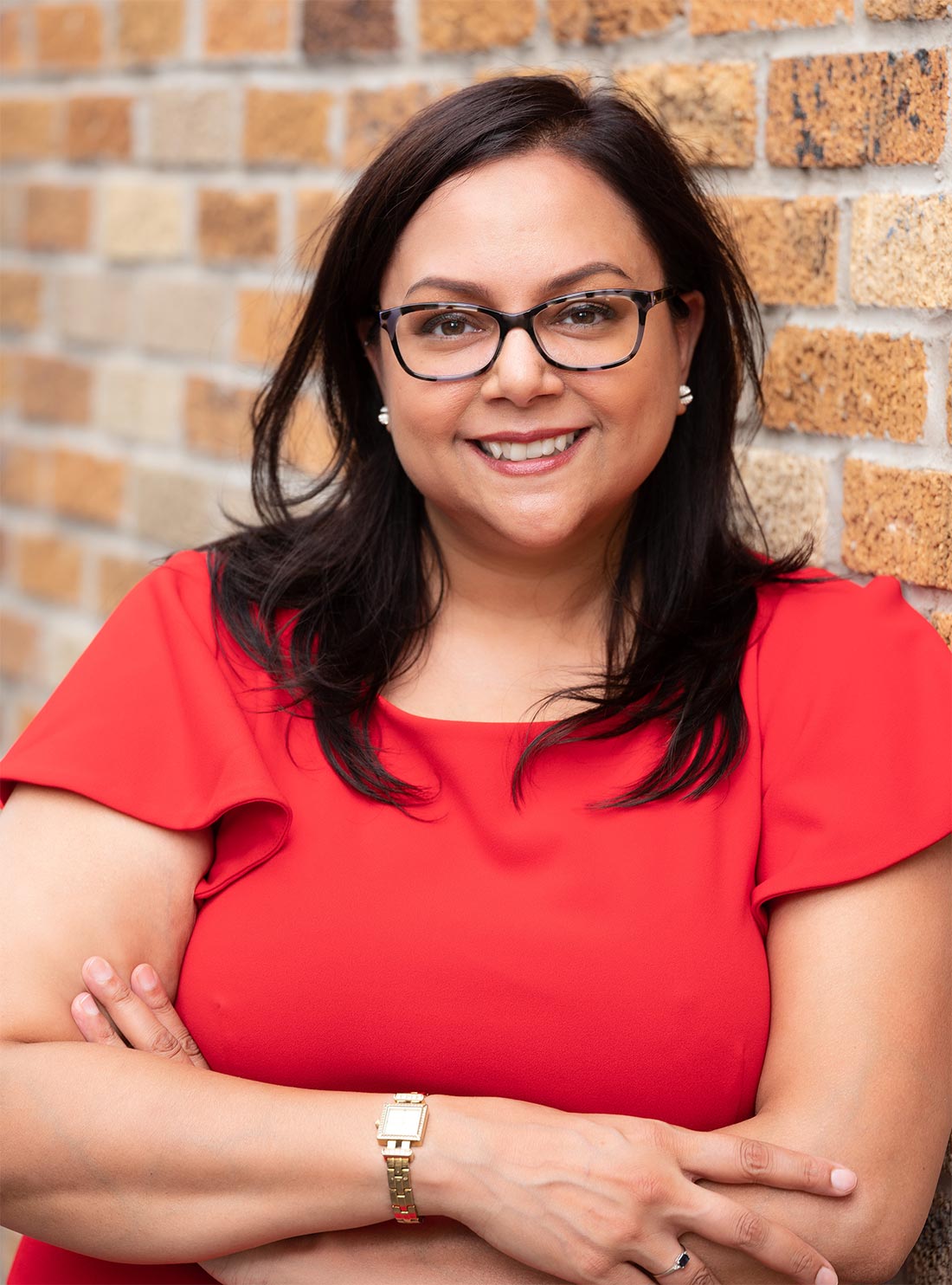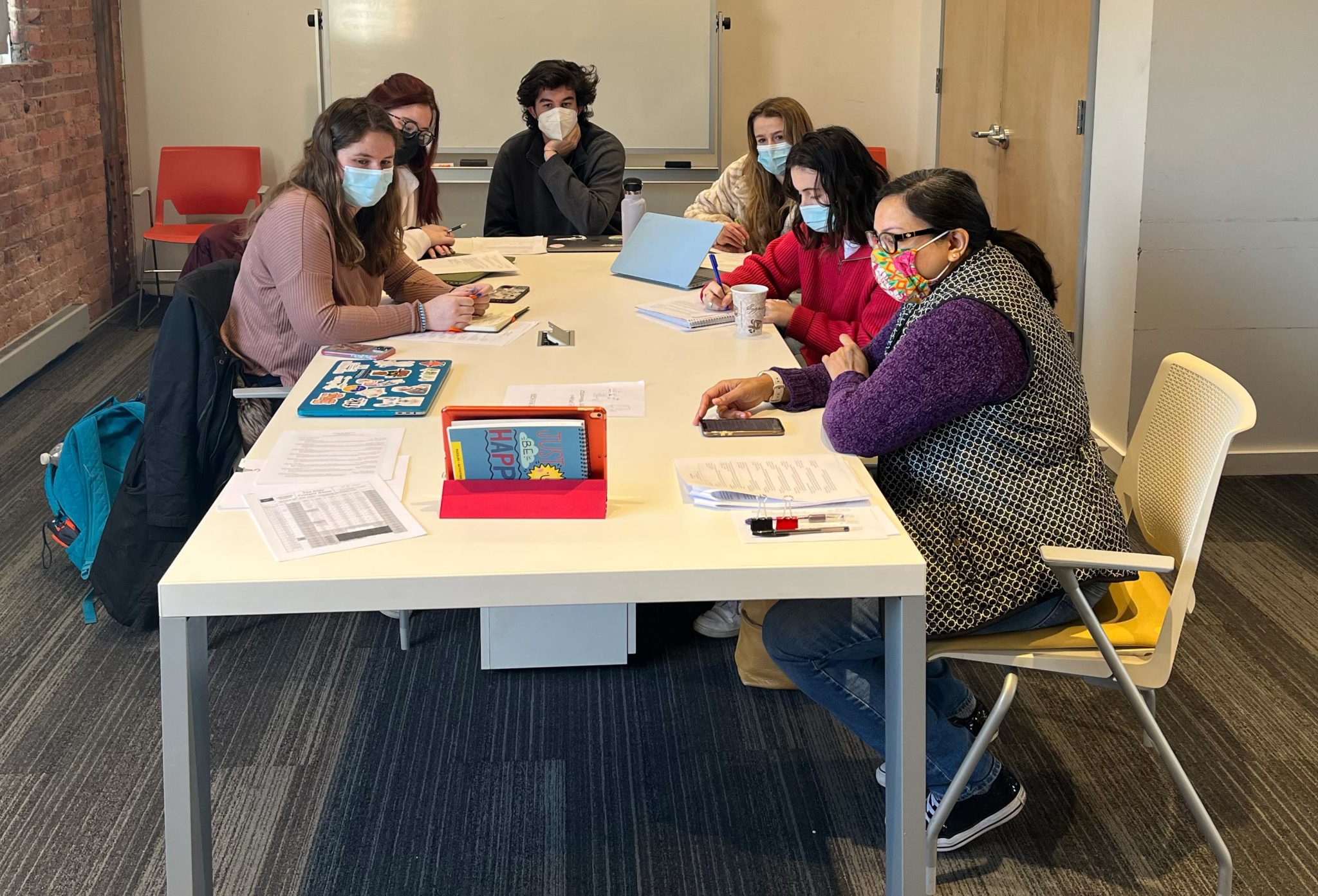NBC studio director Manashi Mukherjee G’07 joins Newhouse NYC faculty

When Manashi Mukherjee G’07 was younger, she loved watching television. But not in the way most young adults do. For Mukherjee, the content of the programs she watched, such as “Austin City Limits” or “Saturday Night Live,” didn’t intrigue her as much as the people behind the camera.
“I watched it and wondered, ‘How are they doing that?’” says Mukherjee, who is now the director of studio and technical operations at NBC, where she manages over 300 tech employees at the network. Mukherjee is also Newhouse NYC’s newest professor, teaching TRF 400 Film Production: Craft and Culture, a new class for television, radio and film students as part of the Newhouse School’s partnership with Lionsgate Studio.
Though this is Mukherjee’s first official teaching job, she’s looking forward to transferring both the hard and soft skills she’s gained as a leader in the industry to her students, especially women. “I want to teach the people coming up under me to not be apologetic for having opinions, [or] for taking up space, or presenting as fiercely as they should be if they have ideas,” Mukherjee says.

Although Mukherjee was always intrigued by television, she didn’t realize it was a career option until she attended the University of Georgia. Mukherjee’s parents immigrated to the United States in the 1970s, and often told her to look for a job with security, such as a doctor, teacher or engineer.
“For immigrants, it’s very important that their children have stable jobs,” Mukherjee says. “When I went to undergrad, I didn’t know you could major in TV production. But it was in the school of journalism, so I was able to sell it to my parents as something they’d heard of.” Mukherjee eventually received a bachelor’s degree in telecommunication arts followed by a masters in arts journalism from the Newhouse School.
Mukherjee’s big break came after she landed an entry-level job as a feeds coordinator at CNN. From there, she worked her way up, serving first as a senior satellite coordinator in London and Georgia, and later as a technical program manager in New York. In 2013, Mukherjee accepted a management position at MSNBC. Over the next few years, she worked on multiple shows at NBC, including “Nightly News with Lester Holt,” “The Tonight Show starring Jimmy Fallon” and “Meet the Press” before landing a position as tech manager for “Saturday Night Live” (SNL).
As a self-proclaimed “theater nerd” and former member of her high school orchestra, Mukherjee says SNL has been her favorite job in television. “In theater, when the show is done, it’s like this huge group collective achievement,” she says. “I got that same high when I worked at SNL because every show was different, every show was hard, and it certainly wasn’t boring. It was creative and it was very collaborative. If those teams don’t work together, you don’t have a show.”
Her role at SNL also built up her self-confidence as well as her knowledge of NBC. During SNL’s off season, she often covered other shows and helped new staff navigate the network. Many people looked to Mukherjee for guidance and mentorship. “I am very confident in my work ability. I know there’s nothing they can throw at me that I’m not going to be able to figure out,” Mukherjee says. “And if I don’t know the answer, I can get you the answer.”
Eric Grode, director of Syracuse University’s Goldring arts journalism and communications program, remembered Mukherjee’s confidence and resourcefulness from when she was an arts journalism student, and recommended Mukherjee for the Newhouse NYC position.
“She was a really impressive student who had great ideas, great ambitions,” Grode says. He and Mukherjee stayed in contact after Mukherjee graduated. At that time, Grode was working as a theater critic in New York City, and often invited Mukherjee to attend shows with him when he had extra tickets.
Mukherjee says she’s tried to navigate her high leadership role differently than how women are traditionally taught to navigate male-dominated spaces. “I would’ve loved, coming up the ranks, seeing someone that looked like me in leadership roles,” Mukherjee says. “I come into it unapologetic. I state my opinions clearly and do all the things that men do that are considered great leadership qualities, but for some reason there’s always a double edged sword [for female leaders].”
Mukherjee says she plans to bring the leadership and mentorship skills she’s learned in the industry to her class. “I want my class to be a safe space where students can come in and talk about whatever it is that they saw, heard, experienced because one person having an experience will always help someone else,” she says.
Grode also says Mukherjee will be able to bring a unique perspective given her current role in the industry. Rather than teaching based on past experience, he says she’ll be able to speak to how operations are running in real time. “These are not hypotheticals of, ‘What would you do if something like this were to happen in your industry?’” Grode says. “It’s more ‘When this thing happened to you, or is happening to you as we speak, how are you dealing with it?’”
Maggie Hicks is a junior in the magazine, news and digital journalism program at the Newhouse School.